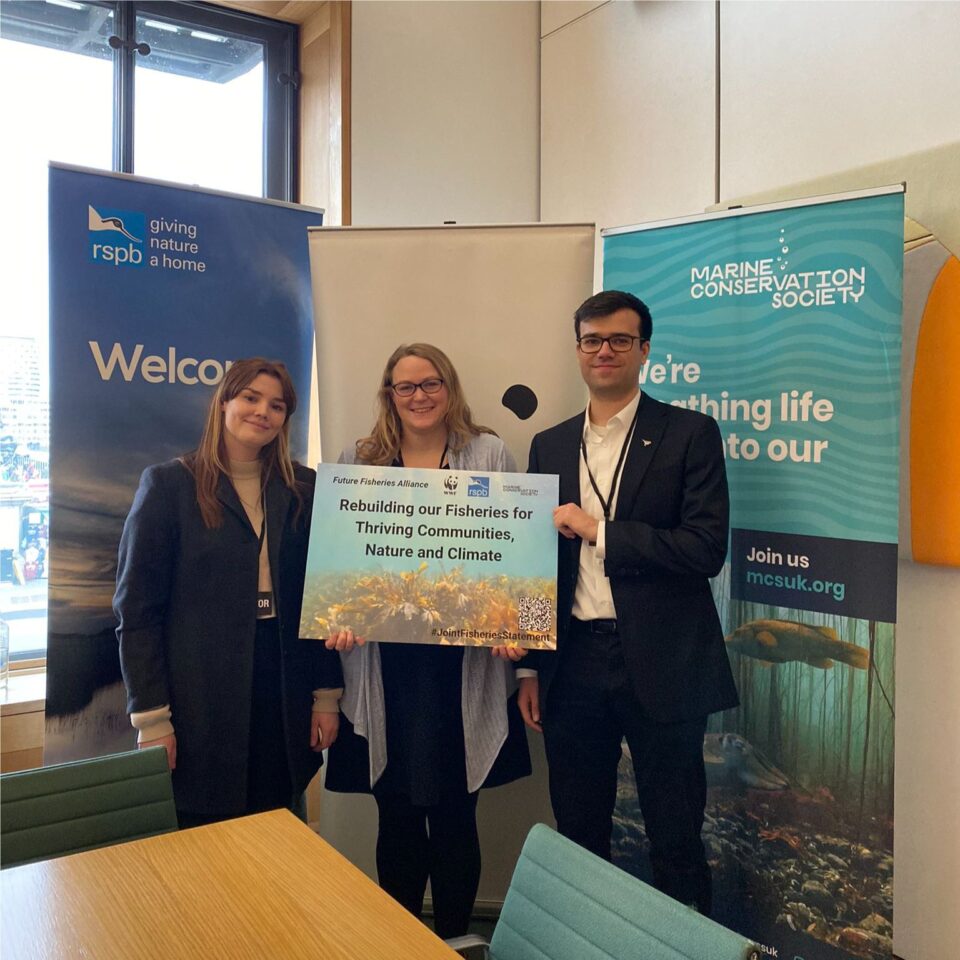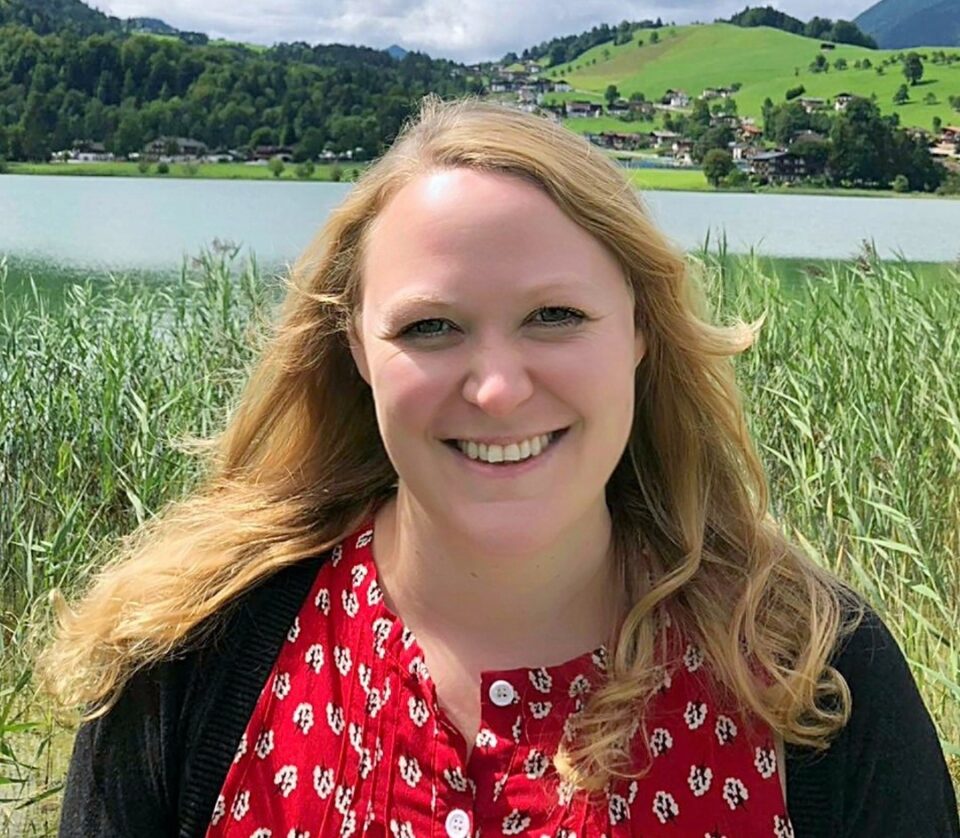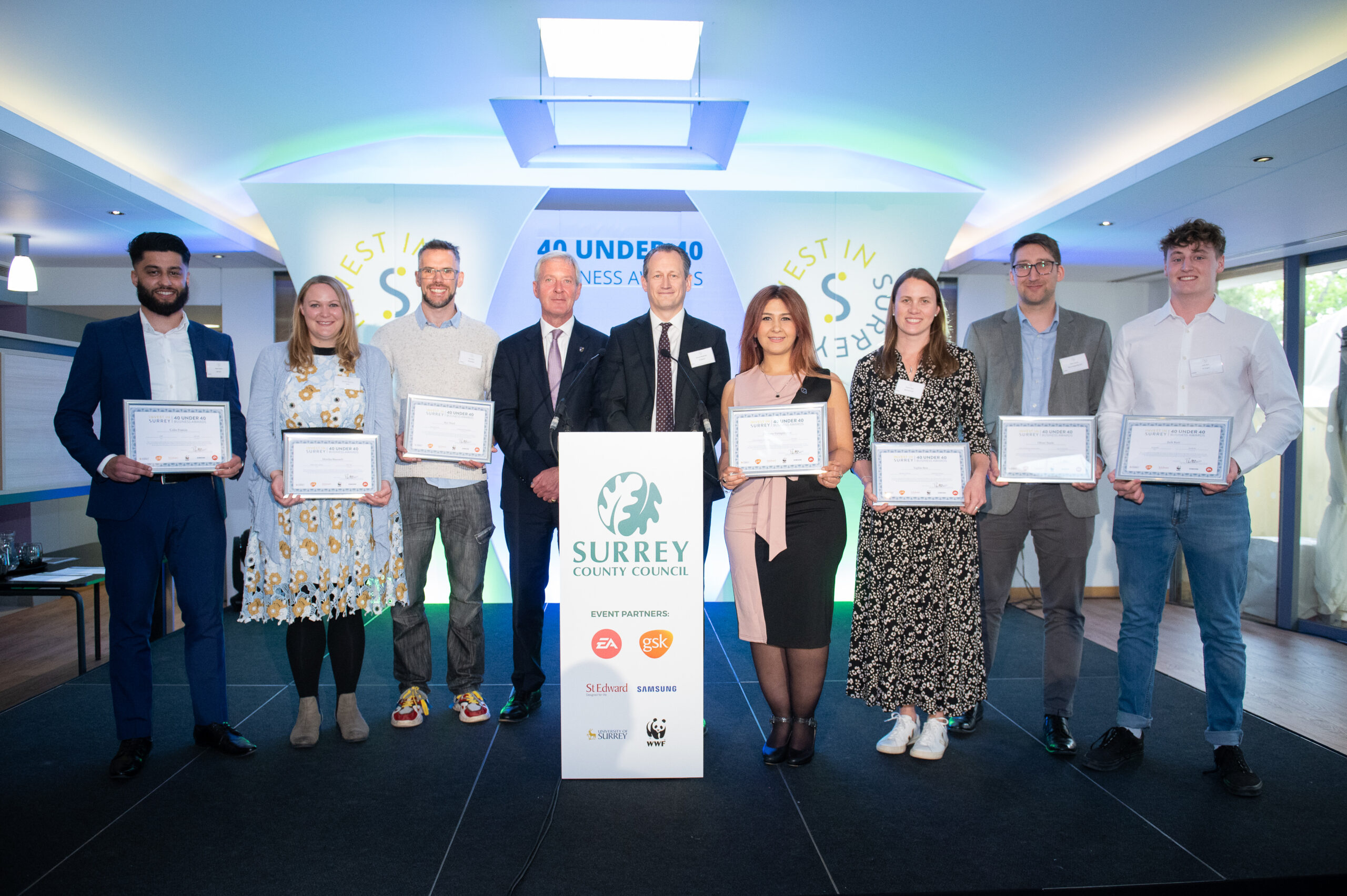An interview with Monika Baunach from WWF UK
News | 29-07-2022
We caught up with Monika Baunach, Public Affairs Adviser for WWF UK and winner of a 2022 Surrey 40 Under 40 Business Award, to discuss where there plans for the future and why they’ve chosen to call Surrey home…
How did it feel to be nominated for a 40 Under 40 Business Award?
It was a huge surprise and very flattering.
What would you say is the key focus of your role within the business?
As part of a small but dedicated Public Affairs team, the key focus of my role is to drive the organisation’s political strategy, provide support to advocacy colleagues and lead the external relationships with politicians in Westminster and Whitehall to influence government policy and legislation to address some of the biggest threats to our planet. A particular focus of my role is on furthering our work on sustainable finance and marine and fisheries from a public affairs point of view.
What are your main priorities as an organisation?
We want to create a world where people and nature can thrive together, stop the destruction of nature and bring about its recovery. We have identified several areas of work that will help turn things around, including working to make our food system sustainable, tackling the climate crisis and taking steps to protect and restore nature. WWF is striving to protect some of the planet’s most vulnerable species through our conservation programmes in areas such as East Africa, the Amazon rainforest, and the Arctic, while also taking action to support nature’s recovery right here in the UK, and shifting our economy towards sustainable, nature-positive investment and job creation.

How were you affected by the pandemic and how did you respond to this as a business?
I went on maternity leave just before the pandemic hit and returned to a situation in which all employees predominantly worked from home. Luckily, there were already well-established processes in place to provide me with the necessary IT equipment, office furniture and information to ensure a smooth return to work. Throughout the pandemic, the organisation followed official Covid guidance in England (and Scotland and Wales for our devolved offices) and adapted its processes accordingly. As case numbers fell, WWF introduced a phased return to work with a focus on retaining the benefits of increased remote working and offering colleagues choice and flexibility, whilst ensuring that employees can also come together as a community again, in person, to deliver our critical mission.
What do the next few years look like for WWF UK?
A recent Intergovernmental Panel on Climate Change (IPCC) report made it clear that we have just eight years to meet the crucial goal of limiting global warming to 1.5°C, a goal we will miss unless we dramatically scale up action to cut greenhouse gas emissions and protect and restore nature. For WWF this means that we will have to turbocharge our work to avert dangerous climate change, achieve a sustainable food system and restore and protect the habitats of thousands of threatened species. We will do so by collaborating with like-minded organisations that share our vision of a sustainable future. This includes other civil society organisations but also the private sector, which has a huge impact on the natural world and
is highly influential on the global stage. We also aim to inspire our supporters to act with us. We will continue calling on decision makers to properly embed climate and nature within legislation, cement the rapid transition to net zero by 2050 and ultimately drive an ambitious, just transition across the food system and the whole economy.
Why do you think your company chose to launch in Surrey & what makes you want to stay in the county?
Having been offered an extremely generous donation by the Rufford Foundation in 2006, ringfenced for constructing the greenest new building possible, the search began for a suitable site to create a new, specially built base for WWF-UK. A site near the centre of Woking – on a space being used as a car park by Woking Borough Council at the time – stood out for a number of reasons. Choosing a brownfield site meant the design would cause minimal disruption to the natural environment. The location was also ideal to develop local wildlife habitats and biodiversity, close to other cultural and visitor attractions and in a good place to forge links with the community. The Living Planet Centre was always designed as WWF’s long-term base. I know that the organisation appreciated the fact that Woking had the benefit of a particularly environmentally aware council, and with good transport links and fast train connections to and from London, why would we want to move?

What do you personally like most about working in Surrey?
Since I live in South West London, right at the Surrey borders, I don’t have to travel via central London to go to work. The Living Planet Centre is in the heart of Woking, so it takes me only a few minutes to walk from the station to the office. Moreover, it truly is an inspiring building, one of the greenest in the UK – it’s packed with sustainable technologies and flooded with natural daylight. It is also situated right next to Basingstoke Canal, which means I can go for a walk along the canal during lunchtime to enjoy the greenery and recharge my batteries.
Find out more about the amazing work that Monika and the WWF UK team do at https://www.wwf.org.uk/
Back To All

